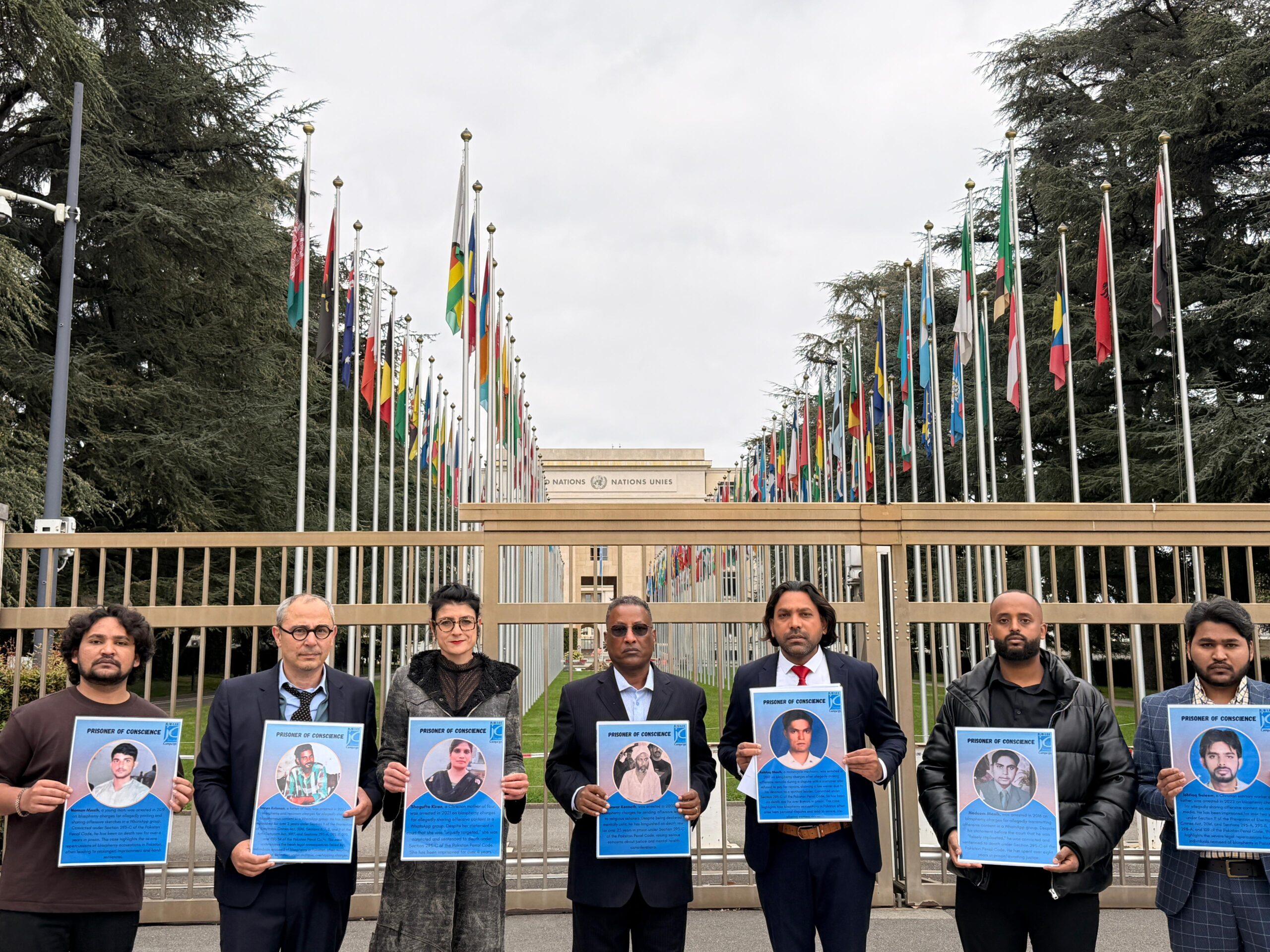News Desk
Geneva, Switzerland – September 29, 2025:
A high-level side event at the 60th Session of the United Nations Human Rights Council (HRC60) in Geneva brought international attention to the ongoing issue of arbitrary detention on the grounds of religion or belief. The event, organized by the Jubilee Campaign in collaboration with the European Centre for Law and Justice (ECLJ), gathered human rights experts, legal scholars, and survivors to expose patterns of religious persecution in Pakistan, China, Eritrea, Algeria, and Vietnam.
Arbitrary detention—defined as the deprivation of liberty without legal justification or due process—remains a serious violation of international human rights law. Across multiple countries, individuals continue to be imprisoned not for violence or crime, but for peacefully practicing their faith or expressing dissenting beliefs. Such detentions are often carried out without warrants, fair trials, or legal representation, and are frequently accompanied by reports of torture, solitary confinement, and enforced disappearances.
Pakistan.
Speakers noted that in Pakistan, political activists, journalists, lawyers, and members of religious minorities—including Christians, Hindus, and Ahmadis—are often detained under blasphemy laws or broad national security provisions. These cases have led to long periods of imprisonment, mistreatment, and death sentences without proper legal process. The cases of Anwar Kenneth, who has been imprisoned for more than 23 years despite mental health concerns, and Christian mother Shagufta Kiran, sentenced to death for alleged blasphemy, were cited as examples. The 2023 Jaranwala attacks, in which more than 80 Christian homes and 26 churches were destroyed, were also highlighted as an example of unequal justice, with many perpetrators released on bail while victims faced severe charges.
China:
China was identified as another country where arbitrary detentions are used to suppress freedom of belief. Human rights defenders and members of religious groups, including Uyghur Muslims, Tibetan Buddhists, underground Catholics, Protestants, and Falun Gong practitioners, continue to face imprisonment under charges such as “subversion of state power.” Reports indicate that detainees, including prominent pastors Wang Yi and Zhang Chunlei, are subjected to forced indoctrination, solitary confinement, and in some cases, death in custody—reflecting a systematic policy of religious repression.
Eritrea:
In Eritrea, only four religious groups are officially recognized by the government, while members of unregistered groups face severe persecution. Several Christian leaders, including Rev. Haile Naizge and Rev. Dr. Tekleab Menghisteab, have been detained for over two decades without trial or legal counsel. Experts described Eritrean prison conditions as extremely harsh, with little access to medical care, violating both national and international legal standards.
Algeria:
Experts also expressed concern over the growing crackdown on religious minorities in Algeria. Cases such as those of Pastor Youssef Ourahmane, Foudhil Bahloul, Hamid Soudad, and Slimane Bouhafs were cited as examples of increasing restrictions on Christian converts and non-Muslim worshippers. Analysts warned that vague legal provisions criminalizing “unauthorized worship” and “offending Islam” are being used to stifle freedom of religion and conscience.
Testimonies and Discussion
The session featured testimonies from legal professionals and survivors. Pakistani advocates presented documentation of blasphemy-related detentions, while minority rights activists called for the abolition of laws that criminalize peaceful religious expression.
A member of the European Parliament underscored the urgency of addressing these abuses, noting that millions of people worldwide are imprisoned for their beliefs and that the international community must hold governments accountable.
Personal accounts added a human dimension to the discussion. Pakistani survivor Zian Shafqat shared how his parents were imprisoned for eight years over their faith, while former Eritrean judge Habteab Yemane Oguubazghi described his country’s shift from religious pluralism to authoritarian control, urging the release of long-detained Christian leaders.
Participants urged the governments of Pakistan, China, Eritrea, Algeria, and Vietnam to immediately end the arbitrary detention of religious minorities, release all prisoners of conscience, repeal laws that criminalize belief, and align national laws with international human rights standards, including the International Covenant on Civil and Political Rights (ICCPR).
Concluding the event, speakers stressed that those detained for their faith are not statistics but individuals whose fundamental rights and dignity have been stripped away. They called on the global community to reaffirm its commitment to protecting freedom of religion or belief for all.


